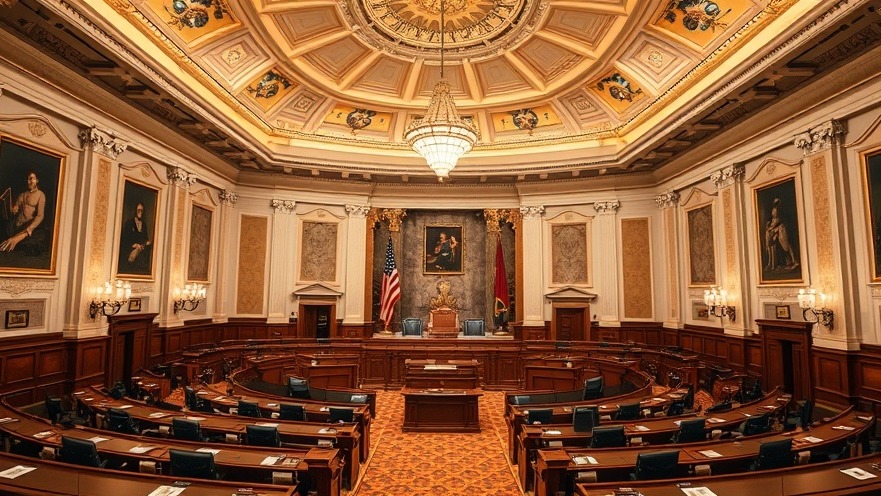
Reinforcing Legislative Accountability: Abbott's Proposal for New Penalties
In a bold move to assert legislative discipline, Texas Governor Greg Abbott has proposed new penalties aimed at lawmakers who abandon their duties during crucial legislative sessions. This initiative stems from ongoing frustrations related to quorum breaks, a tactic employed by some legislators to hinder or stall the passage of bills they oppose. Abbott's call for stricter measures highlights a deeper concern about accountability in governance and legislative efficiency.
The Context of Quorum Breaks in Texas Politics
Quorum breaks have long been a contentious issue in Texas state politics. When lawmakers leave the legislative session, they prevent the assembly from reaching the minimum number of members necessary to conduct business, effectively crippling the legislative process. This tactic was notably utilized by Democratic lawmakers in 2021 who fled to Washington, D.C., in protest of various voter suppression bills.
A consistent theme in political discourse emphasizes the need for cooperation across party lines. As legislative sessions are crucial for passing state budgets, education bills, and significant reforms, frequent quorum breaks can stall progress and hurt Texas's governance.
Civic Engagement: Understanding the Implications
Understanding the implications of Abbott's proposed penalties is crucial for Texans. Bringing lawmakers to account could enhance public trust in the legislative process, which has eroded following numerous standoffs and political gamesmanship. By ensuring that representatives remain present for sessions, the government reinforces the idea that all citizens deserve a voice, as their elected officials must be present to represent their interests actively.
Future Trends: Legislative Discipline and Public Perception
The conversation around legislative accountability is expected to evolve, especially with the upcoming 2025 elections looming. Abbot's proposal may impact the landscape of Texas politics, with potential ripple effects on how future initiatives are discussed and implemented. As citizens grow more disenchanted with perceived political antics, the push for accountability could reshape the dynamics between lawmakers and their constituents for generations to come.
Examining Counterarguments: Divergent Views on Legislative Control
While many support Abbott's proposal for stricter penalties, others argue that such measures could infringe on representative democracy. Critics worry that harsh consequences for lawmakers abandoning sessions could lead to a culture of suppression over dissent. It raises essential questions: Should legislators have the ability to protest against bills they deem harmful, or does this undermine their duty to govern? Exploring these divergent opinions reveals the complexity of political discourse and citizen engagement.
Implications for the Texas Legislative Agenda
As Texas continues to navigate its legislative landscape, Abbott's proposal prompts larger questions about what governance should look like in the Lone Star State. With a growing focus on issues such as public safety, education reform, and economic stability, ensuring that lawmakers can address these priorities without interruption becomes paramount. Legislators remaining in session could lead to more comprehensive discussions and ultimately better policies for Texans across the board.
Call to Action: Engaging in State Politics
As changes unfold in the Texas legislative landscape, it is crucial for citizens to engage actively with their representatives. Attend town halls, stay informed about legislative sessions, and voice your opinions on proposed measures. By participating in the political process, Texans can ensure their voices resonate in Austin and beyond, driving home the importance of accountability and representation in governance.
 Add Element
Add Element  Add Row
Add Row 



Write A Comment